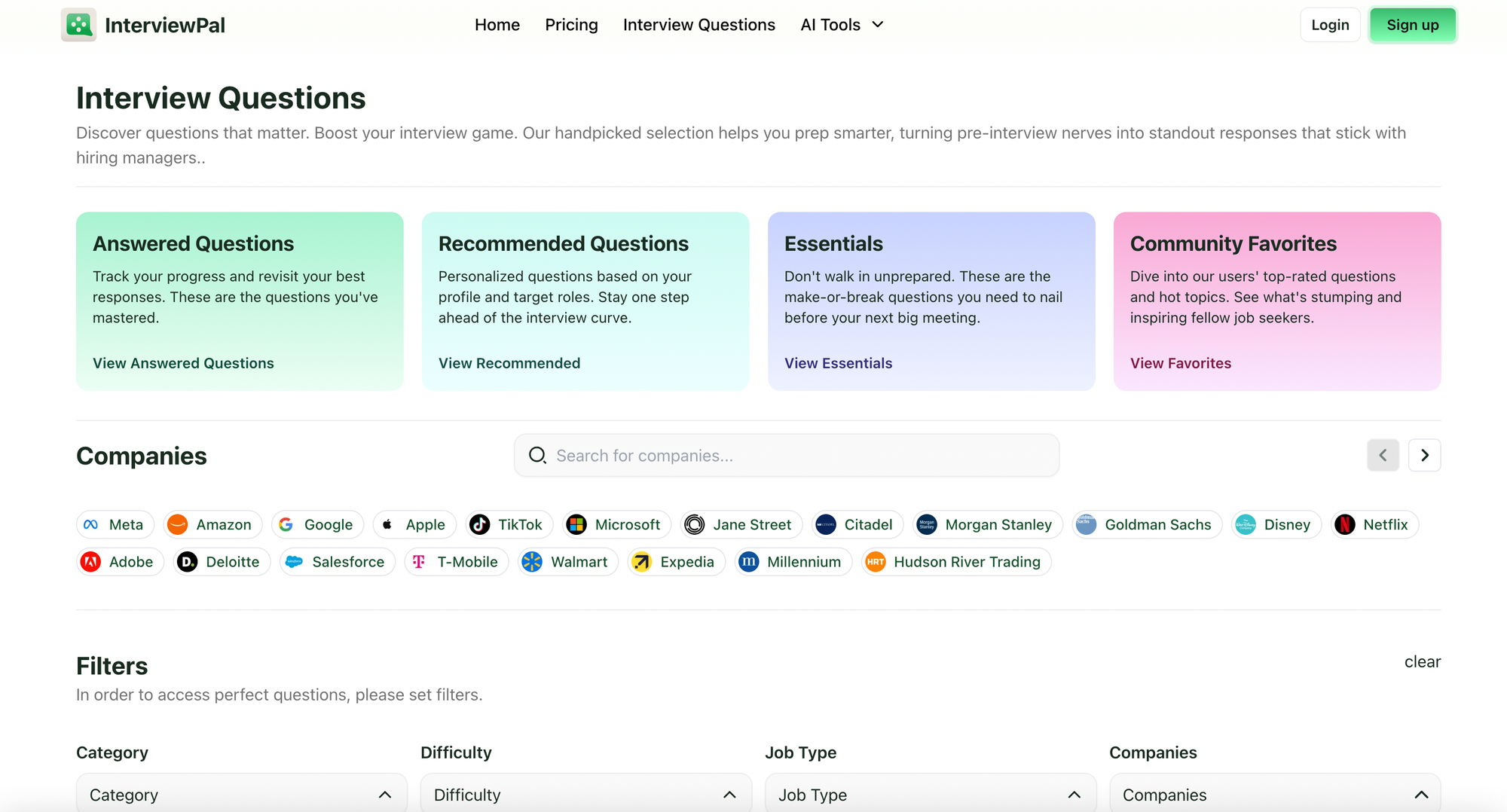As a program manager, especially in technical roles, you’ll be required to understand complex systems, communicate with engineering teams, and ensure successful project execution. Interviewers often ask technical questions to assess not only your knowledge but also your ability to communicate and manage technical details effectively. Below are 20 critical technical questions you may encounter in a program manager interview, along with examples of responses to guide you.
1. Can you describe a time when you had to manage a complex technical project?
Sample Answer:
"In my previous role, I managed a cloud migration project involving several teams across development, IT, and operations. My responsibilities included aligning team objectives, coordinating sprints, and ensuring security and compliance requirements were met. By setting up clear communication channels and conducting regular check-ins, I was able to keep the project on track and complete it 10% ahead of schedule."
2. How do you handle technical risks within a program?
Sample Answer:
"I identify technical risks during the planning phase by conducting a risk assessment and consulting with technical leads. I assign a risk level, prepare mitigation strategies, and ensure we have contingency plans. For example, during a data migration project, I prepared a rollback plan to avoid data loss, which proved essential when we encountered unexpected integration issues."
3. Explain your approach to handling scope changes in a technical project.
Sample Answer:
"When a scope change is requested, I evaluate the impact on timelines, resources, and budget, consulting both stakeholders and technical leads. I prioritize changes that align with our core objectives and seek approval for adjustments when needed. For example, when a new feature was requested mid-project, I worked with the team to assess its feasibility and secured additional resources to avoid disrupting our original schedule."
4. How do you ensure technical teams meet deadlines without compromising quality?
Sample Answer:
"I break down large goals into achievable milestones and closely monitor progress. I hold regular sprint reviews and encourage the team to voice any concerns early. In a recent project, I implemented quality checks at each phase and provided additional resources when needed, which allowed us to meet the deadline without sacrificing quality."
5. What is your experience with Agile and Scrum methodologies?
Sample Answer:
"I have extensive experience managing Agile teams. I ensure that all team members understand Agile principles, facilitate daily stand-ups, sprint planning, and retrospectives, and use tools like Jira for tracking. Agile allows for iterative progress, which I find valuable for adapting to changing requirements. In one project, we successfully released a minimum viable product within three sprints, allowing us to gather feedback early."
6. Describe a situation where you had to resolve a conflict between two technical teams.
Sample Answer:
"In one project, the development and QA teams disagreed on testing procedures. I facilitated a meeting to understand each side's perspective and found a compromise by establishing a testing protocol that aligned with both teams’ goals. This collaboration improved the project’s efficiency and team morale."
7. How do you stay updated with the latest technologies relevant to your role?
Sample Answer:
"I stay current by attending industry conferences, completing online courses, and reading publications. I also engage in knowledge-sharing sessions with technical teams to learn about emerging technologies they’re excited about. This helps me make informed decisions and align our projects with industry best practices."
8. How do you prioritize tasks in a technical program with multiple ongoing projects?
Sample Answer:
"I prioritize tasks based on project deadlines, resource availability, and impact on other projects. I use project management tools to visualize priorities and dependencies. For instance, in a multi-project rollout, I prioritized tasks that were dependent on others, ensuring a smooth workflow and minimal bottlenecks."
9. How do you measure the success of a technical program?
Sample Answer:
"I define key performance indicators (KPIs) at the outset. These may include delivery timelines, budget adherence, system performance, and user satisfaction. For a recent API integration project, I tracked success by monitoring system stability post-launch and user adoption rates, which indicated that we met our goals effectively."
10. What strategies do you use to communicate complex technical information to non-technical stakeholders?
Sample Answer:
"I focus on the 'why' behind technical decisions, simplifying terms and using visuals where possible. For example, during a cybersecurity upgrade, I presented a high-level overview of risks and benefits, avoiding jargon and ensuring stakeholders understood the importance of our actions without needing technical depth."
11. Describe your experience with cloud platforms like AWS, Azure, or Google Cloud.
Sample Answer:
"I’ve managed several projects on AWS, including setting up EC2 instances, managing S3 storage, and using Lambda for serverless functions. I’m familiar with security best practices and cost optimization strategies, and I work closely with engineers to leverage cloud resources effectively."
12. How do you handle dependencies in a technical project?
Sample Answer:
"I map out dependencies at the start and continuously review them throughout the project. I collaborate with teams to address potential bottlenecks proactively. In a recent software release, I created a dependency chart that allowed us to identify critical path tasks, keeping the project on track."
13. What tools do you use for project management in technical programs?
Sample Answer:
"I primarily use Jira and Confluence for task tracking and documentation. For communication, I use Slack and hold regular status updates through Zoom. I also utilize Gantt charts in Microsoft Project for timeline visualization, which helps in aligning project milestones with team availability."
14. How do you ensure data security and compliance within your program?
Sample Answer:
"I collaborate with security experts to establish data handling protocols and conduct regular audits to ensure compliance. During a recent project, I worked with our IT security team to comply with GDPR, incorporating secure data storage and access control measures."
15. How would you approach a program that involves legacy systems?
Sample Answer:
"I assess compatibility with newer systems, plan for incremental upgrades, and coordinate with IT to minimize disruption. In a recent project, we phased out legacy components gradually, implementing middleware to bridge compatibility, which allowed us to modernize the system without significant downtime."

16. How do you handle project delays due to unforeseen technical challenges?
Sample Answer:
"When delays arise, I evaluate their impact, adjust timelines, and communicate updates transparently. For a recent delay caused by integration issues, I scheduled additional resources and revised the timeline, keeping stakeholders informed to manage expectations effectively."
17. What’s your experience with API integrations?
Sample Answer:
"I’ve managed projects that required integrating third-party APIs, overseeing endpoint configurations, security, and performance testing. In one project, we integrated a payment gateway API, which involved close collaboration with developers and extensive testing to ensure seamless transactions."
18. How do you manage technical documentation within your program?
Sample Answer:
"I establish a documentation framework from the start, using Confluence for centralization and ensuring all team members contribute updates. Clear, accessible documentation reduces onboarding time and ensures continuity, especially if there are handovers during the project."
19. Describe your experience with DevOps practices.
Sample Answer:
"I’m familiar with DevOps principles and work closely with DevOps teams to streamline workflows, automate deployments, and improve code quality. In a recent project, I collaborated with DevOps engineers to implement CI/CD pipelines, reducing deployment time by 30%."
20. How do you ensure quality in a technical program?
Sample Answer:
"I implement quality assurance checkpoints at every phase and conduct regular code reviews. In a software development program, I coordinated with QA engineers to run automated and manual tests, ensuring that each release met our quality standards before deployment."
Practice, practice, practice
These 20 questions offer a snapshot of the technical competencies program managers need to succeed in their roles. Preparing answers to these questions helps you demonstrate your technical knowledge, project management skills, and ability to lead teams effectively.
At InterviewPal, we offer a comprehensive database of technical program manager interview questions and answers, with nearly 2,000 questions across various roles and industries. Practicing these questions enables you to sharpen your responses and build confidence, ensuring that you’re ready for any question that comes your way in a technical program manager interview.



